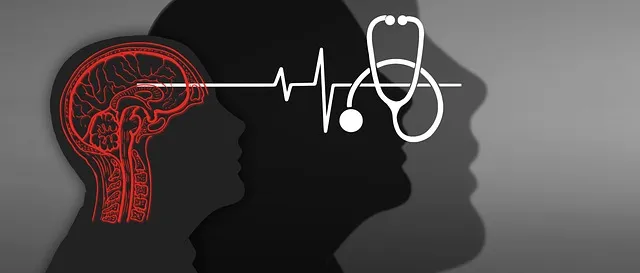The Parker Kaiser Permanente mental health center, led by its owner, prioritizes stigma reduction to deliver quality care. They combat misconceptions through educational initiatives, self-awareness exercises, and self-esteem programs, fostering understanding and compassion in the community. Their holistic approach includes training healthcare providers in cultural competency and community engagement, empowering individuals with tools for emotional well-being. The center's Community Outreach Program offers interactive programs, crisis intervention, and tailored support, significantly reducing stigma and enhancing mental health outcomes under its owner's leadership.
Stigma surrounding mental illness remains a significant barrier to effective care, often deterring individuals from seeking help. This article explores comprehensive stigma reduction efforts at Parker Kaiser Permanente mental health center, owned by Kaiser Permanente. We delve into their understanding of stigma’s impact on mental healthcare and the diverse strategies they employ, including community engagement and education initiatives, to foster an environment where those facing mental health challenges feel supported and empowered to recover.
- Understanding Stigma and Its Impact on Mental Health Care at Parker Kaiser Permanente
- Strategies to Reduce Stigma: A Comprehensive Approach by Kaiser Permanente Mental Health Center
- Community Engagement and Education: Breaking Down Barriers for Support and Recovery
Understanding Stigma and Its Impact on Mental Health Care at Parker Kaiser Permanente

At Parker Kaiser Permanente mental health center, owned by a leading healthcare provider, understanding stigma is paramount to delivering effective care. Stigma, often fueled by misconceptions and lack of knowledge, significantly impedes access to mental health services. It creates an environment where individuals suffering from conditions like depression, anxiety, or bipolar disorder may feel ashamed, isolating them from seeking the support they need. This can lead to delayed treatment, exacerbation of symptoms, and even suicide risks.
Efforts to reduce stigma are crucial at Parker Kaiser Permanente. Through educational initiatives, self-awareness exercises, and programs focused on improving self-esteem, the center aims to foster a culture of understanding and compassion. By breaking down barriers and promoting open conversations about mental health, Parker Kaiser Permanente strives to ensure that all patients receive the care they deserve, without fear of judgment or discrimination. These efforts not only support emotional regulation but also empower individuals to take control of their mental well-being.
Strategies to Reduce Stigma: A Comprehensive Approach by Kaiser Permanente Mental Health Center

The Parker Kaiser Permanente Mental Health Center takes a comprehensive approach to stigma reduction, recognizing that tackling mental illness stigma requires multifaceted strategies. They emphasize the importance of education and awareness campaigns that dispel myths surrounding mental health conditions. By providing accessible resources and promoting open conversations, the center aims to foster understanding and empathy within the community.
Furthermore, Kaiser Permanente focuses on training healthcare providers in cultural competency, ensuring they can offer compassionate and nuanced care. Incorporating practices like Compassion Cultivation helps professionals develop emotional resilience and reduce potential judgmental attitudes. This, combined with initiatives that strengthen individuals’ inner strength and self-care abilities, creates a supportive ecosystem that challenges stigmatizing narratives.
Community Engagement and Education: Breaking Down Barriers for Support and Recovery

Community engagement and education play a pivotal role in Mental Illness Stigma Reduction Efforts, especially when led by trusted institutions like the Parker Kaiser Permanente mental health center by owner. By implementing a robust Community Outreach Program, these centers can break down barriers to support and recovery. Through workshops, seminars, and interactive sessions, they educate community members about mental health, dispelling myths and misconceptions that often contribute to stigma.
This proactive approach includes providing Crisis Intervention Guidance tailored to local needs and cultural contexts. By fostering open dialogue and encouraging peer support, these initiatives create an environment where individuals with mental health challenges feel understood and supported. The Parker Kaiser Permanente mental health center by owner’s leadership in Community Outreach Program Implementation can significantly impact the well-being of its community, ensuring that mental illness is met with compassion and care rather than shame and isolation.
Efforts to reduce stigma surrounding mental illness, as demonstrated by the strategies employed at Parker Kaiser Permanente mental health center by owner Kaiser Permanente, are vital in fostering an inclusive environment for care and recovery. By implementing comprehensive approaches that include community engagement and education, we can break down barriers and create a society that supports individuals facing mental health challenges. These initiatives not only enhance access to care but also promote understanding and empathy, ultimately leading to improved mental well-being for all.


